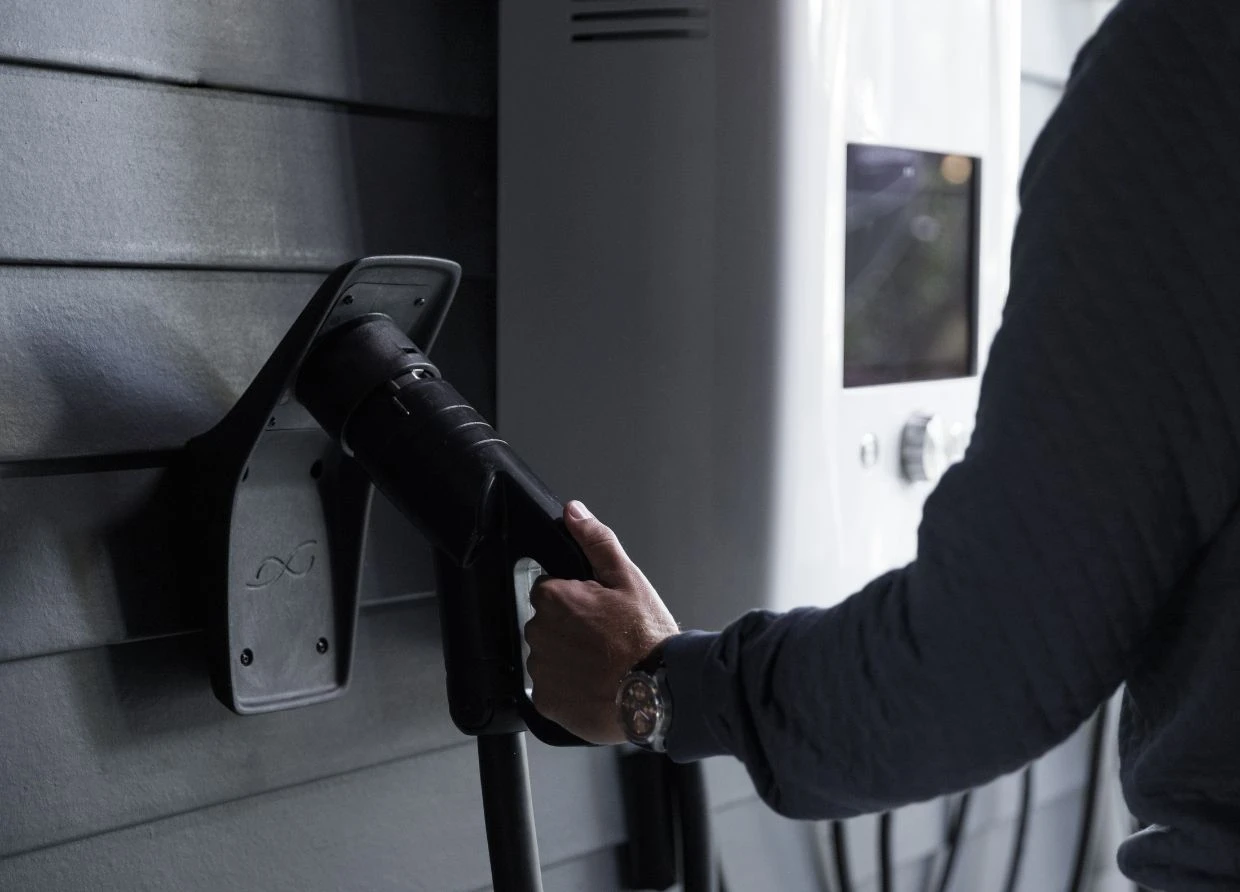WHAT IS NEEDED TO IMPROVE THE ELECTRIC VEHICLE POPULATION IN INDONESIA
Problems to increase the population of electric vehicles, prices and infrastructure

The Ministry of Industry will publish a series of laws to speed the implementation of electric cars in Indonesia, including a target of 400,000 low carbon emission vehicle (LCEV) vehicles by 2025, including battery-based electric motorized vehicles.
Indeed, the transition from fossil-fuel cars to battery-powered electric vehicles (BEV) requires clearer and stricter government policies, such as more excellent tax breaks and various BEV development facilities.
"When we look at incentives, we will divide them into two categories: incentives for consumers and incentives for the company itself. Regarding consumer incentives, one is PPnBM 0 percent if it satisfies the level of domestic content, and there is also a regional tax in the form of PKB or BBM with a maximum value of 10 percent for cases in specific locations," said Dodiet Prasetyo, Head of the ILMATE Sub-Directorate of the Ministry of Industry (Kemenperin).
View this post on Instagram
In addition, various banks have offered 0 percent down payment incentives, cheap interest rates, and PLN has offered reductions on electricity rates and discounts on extra power."
Dodiet went on to say that the most crucial thing for consumers is that when they use this battery-powered electric motor vehicle, they are free to take routes that are labeled as odd or even lanes.
So, what kind of incentives do businesses get? Dodiet underlined the importance of tax holidays, mini tax holidays, tax allowances, exemption from import duties, government-borne import charges, and super tax deductions for R&D activities to promote investment in electric-powered vehicles in Indonesia.
Efforts undertaken by the government through the Ministry of Industry must be carried out immediately with strict implementation and regulations for the electric vehicle industry to thrive; in this regard, PLN has taken several strategic actions.
However, industry players have noted for the Ministry of Industry the supporting factors for the development of electric vehicles, including zero-emission policies from the Central Government, fiscal and non-fiscal incentives, the provision of supporting infrastructure, and the use of electrical energy for public transportation.
BEV development necessitates extra tax breaks to make them more cheap and comparable to internal combustion engine vehicles. Additional incentives include a 0 percent import duty (BM) tariff on completely built-up BEV (CBU) imports, as well as a 0 percent value-added tax (VAT) and income tax (PPh).
This additional incentive is critical, given that the 0 percent luxury goods sales tax (PPnBM) incentive for BEVs is insufficient to reduce the selling price of electric vehicles. At the moment, some BEV players, including Hyundai Indonesia and Prestige Image Motorcars, have received 0 percent PPnBM incentives.
In fact, the Hyundai Ioniq EV and Kona EV have obtained a 0 percent transfer fee (BBN) incentive for DKI Jakarta, along with a 5 percent import duty (BM) tax. However, the price of these two BEVs remains high, at roughly Rp 600 million. The prices are as follows: Rp 624.8 million for the Ioniq Prime, Rp 664.8 million for the Ioniq Signature, and Rp 674.8 million for the Kona EV SUV (OTR Jakarta).
Meanwhile, Prestige, a premium automotive specialist, sold a Tesla Model 3 for Rp 1.5 billion. The total tax rate for the Tesla Model 3 is roughly 80 percent. In reality, the best-selling car sector in Indonesia is from Rp 200 to Rp 300 million price range. According to a study by the University of Indonesia (UI), the best range for an electric car is between Rp 300 and 350 million.
View this post on Instagram
Tri Wahono Brotosanjoyo, External Team Director of PT Hyundai Motor Asia Pacific and PT Hyundai Manufacturing Indonesia, stated that special incentives, such as toll tariff incentives, were required to increase market interest in electric vehicles.
"We propose extra incentives for us in the future, such as toll payments. Because, when calculated, the toll costs about three times what it would cost to charge an electric car from Jakarta to Surabaya "Friday (17/12/2021), Tri said in the IDX Channel Economic Outlook 2022.
Furthermore, he proposed reducing parking prices in the next year or two. This incentive is expected to boost sales of the company's electric vehicles, particularly those manufactured in Cikarang.
According to Tri, the price of electric vehicles is proportional to the number of cars on the market and the positive response from the community. It will prepare medium and low consumer segmentation to reach the community as a whole. "Of course, we want the price of this electric car to come down, and we will continue to develop our products so that, maybe, next year, it will not only be in the premium market," he explained.
Furthermore, Ridzki Kramadibrata, President of Grab Indonesia, stated at the IDX Channel Economic Outlook 2022 that he hopes to operate 12,000 electric vehicles this year. This electric vehicle is made up of two and four wheels.
"We have run over 8,500 electric, two-wheeled, and four-wheeled vehicles to date. We expect to reach 12,000 vehicles by the end of the year," Ridzki Kramadibrata, President of Grab Indonesia, said.
Electric vehicles have a significant market possibility because they use cutting-edge environmentally friendly technologies. With the usage of 8,500 electric cars, the firm has decreased CO2 emissions by around 4,600 ounces, equivalent to the amount absorbed by approximately 200,000 trees in a year.
"As a result, we see that the government's assistance, PLN, and Hyundai are exceptional, and we see that the government is really focused here," he said.
Kukuh Kumara, Secretary of the Association of Indonesian Automotive Industries (Gaikindo), stated that the cheapest electric car in Indonesia costs roughly Rp 600 million even though people's purchasing power for vehicles remains below Rp 250 million.
"This appears to be extremely heavy, and the price seems to be rather exorbitant. Even the most basic electric vehicle costs Rp 600 million. Our society's purchasing power is still less than Rp 250 million," he said.
As a result, according to Kuhuh, there is still a price difference of roughly Rp 300 million between the price of an electric automobile and the price that Indonesians are interested in. To solve this, he believes that government assistance in the form of incentives to encourage the usage of electric vehicles is required.
According to Kukuh, governments in other nations generally provide incentives to make electric cars more inexpensive so that people switch to these vehicles, like in China, where subsidies of up to 15,000 USD per unit were granted.
"Wherever electric vehicles receive government subsidies, we obtain information from colleagues that the subsidies in China are around 15,000 USD per unit, as well as in South Korea," he said.
It is known that PLN is prepared to strengthen electric vehicle infrastructure through various initiatives that have been created. It also has adequate power reserves in the system, ranging from 40 to 60 percent.
Furthermore, PLN will expand its collaboration with third parties by sharing economic value, which is presently in use and replicated, such as banking, postal points, and others.
According to PLN President Director Zulkifli Zaini, in addition to being ecologically benign, the adoption of electric vehicles can help to stabilize the economy. This is because electricity is generated by power plants whose primary energy is readily available. As a result of developing an electric car ecosystem with energy produced from within the country, the use of oil-fueled vehicles will decline, allowing the state to minimize oil imports and save foreign exchange. This situation will mitigate the current account deficit (CAD) and strengthen the domestic economy.
View this post on Instagram
"We import trillions of rupiah of fuel for fossil automobiles, but we don't import anything connected to primary energy for electric cars," said Zulkifli. "These are two factors that actually assist our economic growth going forward."
According to him, more appealing regulations are needed to encourage individuals to acquire electric cars rather than fossil fuel cars to accelerate the electric car ecosystem among the general population. He stated that the government had actually eliminated the Luxury Goods Sales Tax (PPnBM) for electric automobiles, but that there were two fees, namely Value Added Tax (PPN) and Income Tax (PPh), that were enjoyed by fossil cars but not by electric vehicles. As a result, it is hoped that the government would implement the same tax policy for electric and fossil cars.
"We believe and hope that the government's policy will be able to eliminate the VAT and PPh (for electric cars), as enjoyed by fossil cars," he said.



























